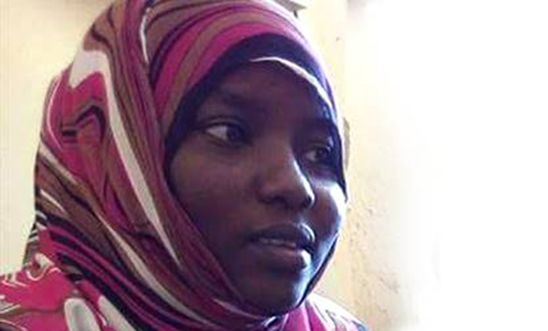
Why Sudanese teenager Noura Hussein’s case matters

“Well, we all married at her age what is the problem really?!”, “What do you mean her husband raped her??”, “He is her husband and she should submit to him, this is the whole point of marriage!”, “She killed someone, no matter the reason, she should be killed”.
These are just a few of the social media posts from some Sudanese people on the case of Noura Hussein, the 19-year-old Sudanese woman who was sentenced to death in May 2018 for killing the man she was forced to marry, as he tried to rape her the second time. In June, the court of appeal overturned her death sentence in favor of five years’ imprisonment and financial compensation, customarily known as Diya or “blood money”, to the tune of about $8,400.
This kind of reaction by some people in Sudan is not surprising. None of the horrific facts in her case are rare or would be surprising in Sudan; not child marriage, not forced marriage or marital rape. This is exactly why Noura’s case matters, and exactly why the global campaign against these human rights abuses should to go beyond just #JusticeforNoura.
Girls married off as early as at 10 years of age
Sudan’s Personal Status Law of 1991 allows children to be legally married at the tender age of 10. Once married, these children are expected to give birth and raise the children. According to UNICEF, 12% of children in Sudan are married by the age of 15 and 34% by the age of age of 18. Most of those affected and at risk are girls.
Sudanese law forbids, women and girls, regardless of their age, to marry without the consent of a male guardian. The guardian is usually their father, brother, or uncle but can sometimes be the prospective bride’s own son! Without this consent, the marriage is void. On the other hand, and despite a legal requirement that women give their consent to be married, there are no legal safeguards to ensure consent has been clearly and freely given.
Wedding contracts, traditionally, are men-only ceremonies. They often take place in mosques away from women. In practical terms, this means that marriage contracts are signed between the groom and the bride’s “guardian,” without checking whether she has given her consent. If a woman or girl finds a way to meet the Imam/registrar and inform him that she does not consent to the marriage, then the marriage contract is rendered null and void. However, the social context in which most weddings take place in Sudan does not allow women and girls to do so.
Sentence, appeal and counter-appeal
At Amnesty International, we followed Noura’s case closely from when she was convicted in April and campaigned that the court consider her forced marriage and rape as mitigating circumstances during sentencing. So, it is no surprise that we were outraged when she was handed the death sentence. Amnesty opposes the death penalty in all cases without exception, as it is a violation of the right to life.
We live in a world rife with human rights violations, to the point where one could lose hope. But occasionally we see that if we join hands with other human rights activists and campaign as one, bringing together our collective and individual voices, we can swim against the tide. We can make governments listen. We can cause change. The campaign for Noura was one such moment.
Unfortunately, although her death sentence has been overturned, the struggle is not over yet. The General Prosecutor has appealed to the Supreme Court to reinstate it and the ruling is expected in the next few months.
We must remain alert and once again resist Noura being subjected to this cruel, inhuman and degrading punishment. We must also continue to pressure the Sudanese government to reform its criminal code and family laws to ensure Noura, and all the other Nouras around Sudan, are fully protected from all human rights abuses, including early marriage, forced marriage, marital rape and other forms of gender-based violence.
Our blogs are written by Amnesty International staff, volunteers and other interested individuals, to encourage debate around human rights issues. They do not necessarily represent the views of Amnesty International.
0 comments